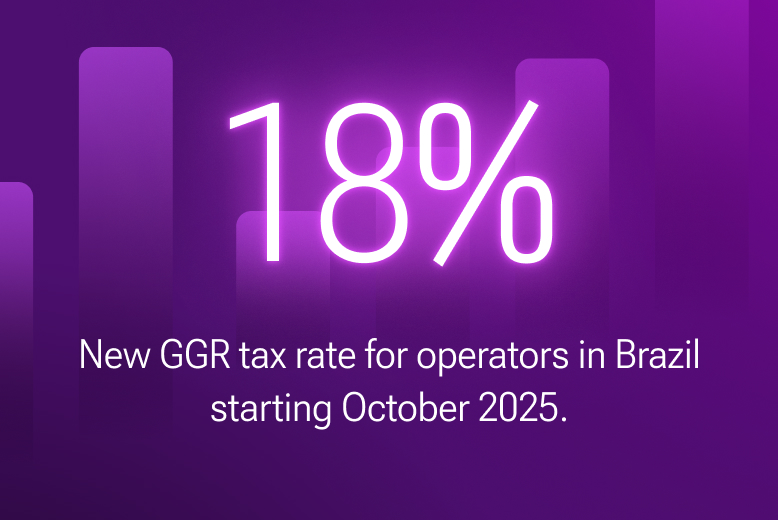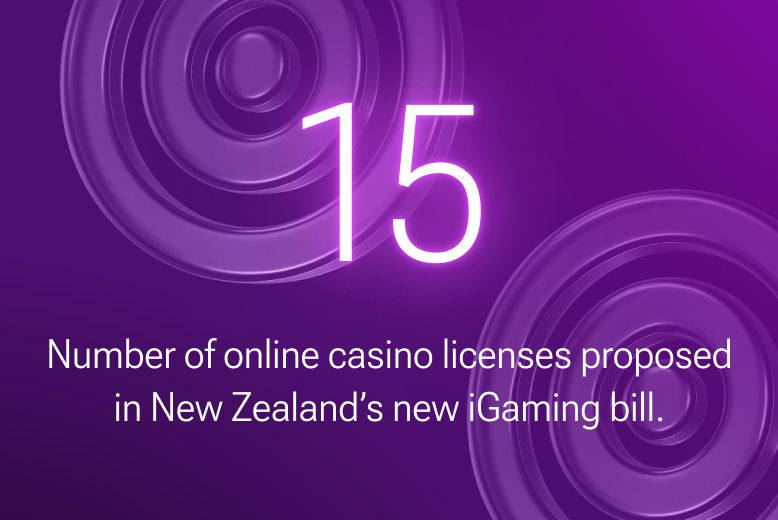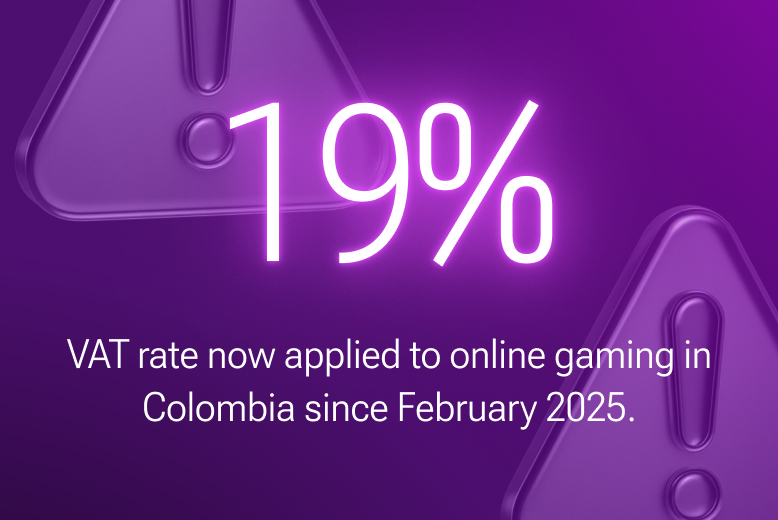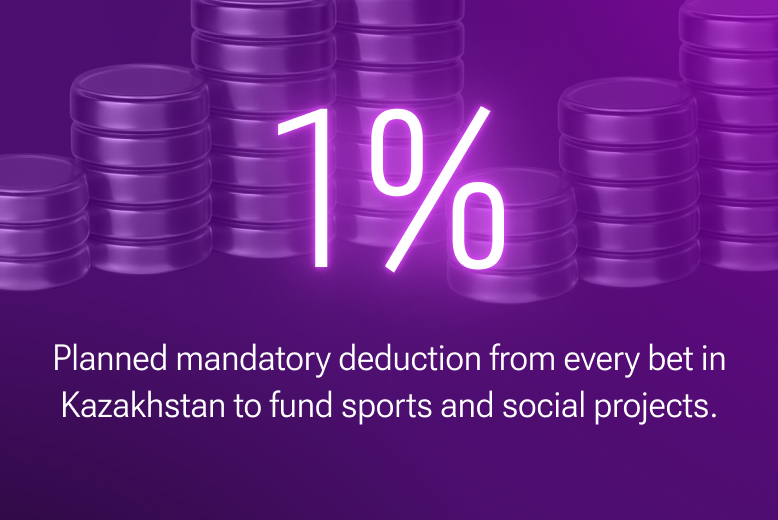The iGaming industry never stands still, and regulatory updates across different jurisdictions continue to reshape how operators plan their strategies. From higher taxes in Brazil to New Zealand’s first steps toward a licensed online casino market, new rules are emerging that directly affect compliance, market entry, and long-term operations.
To help operators stay informed, the legal team at EvenBet Gaming — Dmitry Smirnov, Lawyer, and Darya Korshunova, Junior Legal Counsel — has prepared this overview of the most notable regulatory changes of 2025. Here, you’ll find a country-by-country look at what has already been enacted and what’s on the horizon, along with insights into what these shifts may mean for the industry.
Brazil: Higher Taxes and Rising Compliance Pressure

In June 2025, the Brazilian government introduced Provisional Measure No. 1,303/2025, which raises the gross gaming revenue (GGR) tax from 12% to 18%. The change takes effect on October 1, 2025, continuing the broader regulatory overhaul that began with Law No. 14,790/2023. This law created Brazil’s national framework for fixed-odds betting (covering both sports wagering and online casino-style games) under the Ministry of Finance’s Secretariat of Prizes and Betting (SPA).
New Tax Rules and VAT Reform
Brazil is also tightening rules on payments to foreign companies. Any transfer abroad—whether income, profit, or other payments—is now automatically subject to a 15% tax. The Supreme Court is reviewing whether this should apply to all types of technical services, a decision that could heavily impact businesses working with foreign partners.
At the same time, the country is rolling out a new dual VAT system (federal and regional). This tax will apply to all goods and services, including digital products and platforms, and will be charged based on the buyer’s location.

Added Burdens for Operators
For iGaming companies, these changes pile onto already demanding requirements:
- a one-off national licence fee of about R$30 million,
- strict KYC and AML compliance,
- transparent payout tables,
- advertising restrictions to protect vulnerable players.
Authorities are also stepping up enforcement by blocking unauthorized sites and requiring foreign platforms to appoint local tax representatives.
Market Outlook
Altogether, these changes make operations in Brazil significantly more expensive and complex. The GGR hike, the 15% withholding tax, and the dual VAT system may push some operators to scale back promotions, reduce product offerings, or even leave the market. Smaller operators, in particular, could struggle to compete, while larger groups with resources to absorb high fixed costs may consolidate their positions.
Uncertainty around potential retroactive charges and pending Supreme Court rulings further clouds the outlook. On the other hand, Brazil’s massive and growing player base still offers opportunities for licensed operators able to localize products and manage compliance effectively. Stronger enforcement against unlicensed play could also help level the field for those meeting the rules.
For operators: Expect a more concentrated, higher-cost Brazilian market with elevated compliance risk. Success will depend on scale, strong local representation, and readiness to adapt to a shifting legal environment.
USA: Offline Casinos Push Back Against iGaming

In March 2025, the city of Black Hawk, Colorado—a hub for land-based casinos—became the first municipality to officially join the National Association Against iGaming (NAAiG), a group opposing the legalization of online gambling. The city council voted unanimously after reviewing research presented by NAAiG.
Concerns About Economic and Social Impact
According to the data shared, legalizing online casinos could:
- cost about 2,050 jobs,
- reduce revenue by $129 million,
- cut economic activity by $520 million,
- add $830 million in expenses for treating gambling addiction and related social support.
These figures are being used to argue that online gambling threatens not only the offline casino industry but also the wider economy and public health.
A Strategic Move in the Legalization Debate
Although Colorado has not yet introduced iGaming legislation, Black Hawk’s decision may be part of a broader strategy to mobilize local communities against potential legalization. By aligning with NAAiG now, the city positions itself to influence future debates at both state and national levels.
For operators: The U.S. remains a highly fragmented market, and opposition from land-based casinos is strong. Expect resistance in some regions, with advocacy groups pushing back against legalization efforts before they gain momentum.
Malta: A Risk-Based Approach to Regulation

In early 2025, the Malta Gaming Authority (MGA) introduced a new regulatory strategy that moves away from box-ticking compliance and toward a more modern, evidence-driven model. Rather than simply checking rules against a checklist, the MGA will focus on identifying real risks and managing them proactively.
Key Priorities of the New Strategy
The regulator’s updated approach centers on:
- allocating resources based on the level of risk,
- strengthening cooperation with operators,
- anticipating and preventing threats before they escalate.
Particular attention is being given to game fairness, player protection, and mechanisms to prevent gambling addiction. The MGA is also emphasizing sports betting integrity, stricter AML enforcement, and the use of data analytics to detect irregular activity.
Market Confidence and Sustainability
By shifting focus from formal controls to risk-based supervision, Malta aims to increase trust in its jurisdiction and make regulation more effective. The strategy highlights the country’s ambition to maintain its status as one of the world’s leading hubs for iGaming, while promoting a more sustainable and responsible industry.
For operators: Expect closer cooperation with the MGA and more proactive oversight. Those who invest in compliance, transparency, and player protection will find Malta remains a strong, reliable jurisdiction for long-term operations.
New Zealand: Building a Regulated Online Casino Market

In July 2025, the New Zealand Parliament passed the first reading of a new iGaming bill. MPs voted 83 to 39 in favor of the proposal, which paves the way for up to 15 licensed online casino operators.
Key Features of the Bill
The legislation would:
- create a regulated licensing regime for online casinos,
- prohibit unlicensed operators and advertising,
- introduce strong consumer protection and harm minimization measures.
Importantly, the law will apply extra-territorially. Operators already in the market will have a transitional period: they can continue until late 2026 if they apply for a license by July 1, 2026.

Licensing and Enforcement
The bill is expected to be fully enacted in early 2026. Licenses will be auctioned on three-year terms, with strict requirements for licensing, taxation, and responsible gaming compliance.
Currently, New Zealanders can access offshore platforms, though foreign advertising is banned under the Gambling Act 2003. The new framework aims to channel this activity into regulated providers. Unlicensed services and advertising will be prohibited, with fines reaching NZ$5 million.
The Department of Internal Affairs (DIA) is now drafting detailed rules. Only around 15 platforms will be approved, and each must meet high safety and responsibility standards.
Market Impact
Authorities, led by Internal Affairs Minister Brooke van Velden, stress that the aim is not to boost gambling volumes but to ensure safer, more responsible play while capturing tax revenue.
However, domestic operators such as SkyCity and Christchurch Casino warn that international giants could dominate the auction process, leaving local companies at a disadvantage.
For operators: New Zealand is opening a small but well-regulated online casino market. Opportunities exist, but competition for just 15 licenses will be intense, and compliance expectations will be high.
Belarus: Tighter Controls on Players and Operators

On June 6, 2025, Belarus adopted Decree No. 226 “On activities in the gambling business”, introducing wide-reaching changes. A transition period will last until July 1, 2027.
Stricter Identification Rules
The new law bans multiple accounts under the same name and eliminates the use of “borrowed” documents or bank cards. From now on, players must register, access games, and make payments strictly with their own documents and accounts. The aim is to reduce gambling addiction and prevent minors from entering the market.
Restrictions on Foreign Transactions
Belarus is also tightening payment controls. Players will be unable to gamble if money is transferred to a foreign bank in favor of a non-resident. Banks are prohibited from processing payments under merchant code 7995 (“gambling activity”), effectively blocking transactions with offshore casinos.
New Obligations for Operators
Operators face direct changes as well. Slot machines may now be used only after registration in the State Register and must match certified models. At the same time, the law opens a legal pathway for bonuses through Hi-Tech Park (HTP) residents who run crypto platforms or exchanges.
Market Outlook
With these changes, Belarus is tightening control over both players and operators, aiming to steer the market toward local licensed participants. The new rules make offshore play harder and increase compliance pressure on legal operators.
For operators: The Belarusian market is moving toward stricter identification, payment controls, and stronger oversight. Local licensing may become the only viable option, while offshore access is being systematically cut off.
Other Countries: Updates at a Glance

Canada
In May 2025, Bill S-211 was introduced, aiming to establish a national framework for regulating sports betting advertising. A key point of debate is the proposed ban on celebrities and athletes in gambling ads. The bill also expands federal oversight of the industry.
While not as sweeping as the reforms in Brazil or New Zealand, these regional changes show a clear trend: regulators are tightening financial oversight, tax rules, and advertising restrictions. Operators should expect closer monitoring and higher compliance costs, even in smaller markets.
Mexico
On June 25, 2025, the Senate approved reforms to the Anti-Money Laundering Act and the Federal Penal Code. Key changes include:
- expanded oversight by financial authorities,
- mandatory reporting of suspicious transactions regardless of size,
- stricter penalties for non-compliance.
Operators will need to review their user verification and payment protocols. The reforms are expected to reduce the overall number of licenses in the market.
Colombia
No major changes to gambling advertising have been introduced. However, since February 2025, online gaming has been subject to a 19% VAT.

Kazakhstan
The Ministry of Tourism and Sports is preparing to introduce a 1% mandatory deduction from every bet. The funds will be allocated to physical education, youth and mass sports, and other social projects. The start date of the initiative has not yet been announced.

India
Just as we were preparing to publish this review, the Indian government has approved a blanket ban on real-money online gambling, including betting and games of skill such as Rummy. We will analyze these changes in our next regulatory overview.
Conclusion: A Stricter but More Structured Global Market
The summer of 2025 has brought a wave of regulatory activity across the globe. From Brazil’s sweeping tax and compliance reforms to New Zealand’s cautious entry into online casino licensing, jurisdictions are reshaping the way operators must approach their businesses. While some markets, like Malta, are focusing on smarter, risk-based oversight, others, such as Belarus and Mexico, are tightening identification, payments, and financial controls.
The common thread is clear: regulators are moving toward stricter rules, greater responsibility for operators, and closer monitoring of both financial flows and player protection. For iGaming businesses, this means higher costs and more complex compliance—but also a more structured and sustainable market environment in the long run.
At EvenBet Gaming, we track these changes to keep our partners informed and ready for what comes next. The industry may be facing “hotter” times, but being prepared and adaptable will remain the key to long-term success.





 Upd: 10 December 2025
Upd: 10 December 2025 






















